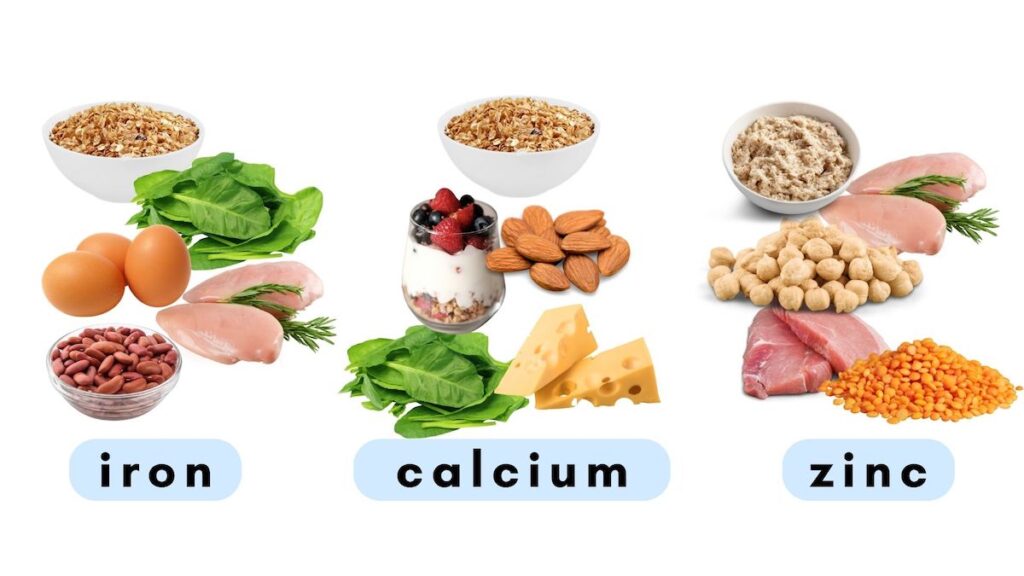Whether it was from a family member, coworker, or even a Facebook post, you’ve probably heard this phrase before – “Food before one is just for fun”. But is it actually true?
Not only is this phrase untrue, but it can lead to poor outcomes such as delayed oral motor development and even childhood obesity (1).
In this post, we will break down why this phrase is misleading and not supported by the current research on infant feeding.
Let’s get myth-busting!
Myth-busting: Food Before One is NOT Just for Fun
Breast Milk Does NOT Meet All Nutritional Needs (starting at 6 months)
At 6 months old, an infant’s nutritional needs are often greater than what breast milk can provide them (2). When exclusively breastfed beyond 6 months old, infants are at higher risk for iron, zinc, and calcium deficiency (3).
However, this is an easy fix! Serving complimentary foods along with breastmilk can significantly reduce their risk for vitamin and mineral deficiency.
It is recommended to serve a variety of proteins, fruits, and vegetables. The more variety the better! To focus specifically on what infants are missing from breast milk, consider the following complimentary foods:
- Iron: iron-fortified cereals, eggs, fish, chicken, turkey, spinach, beans
- Zinc: chicken, pork, lentils, yogurt, oatmeal, chickpeas
- Calcium: yogurt, cheese, spinach, almonds, fortified cereal
Learn more here about the most common nutrient deficiencies in children.

Solid Foods Encourage Oral Motor Skills
Infants start to develop controlled tongue mobility around 5 months old (4). When infants are fed a variety of food textures that encourage them to use this new skill, it can lead to even more oral and maxillofacial muscle development (5).
Introduction to solids before 1 year of age has even been linked to aiding the development of speech! (5)
To encourage your baby to use their oral motor skills, make sure to offer a variety of textures. Try to avoid only serving purrees, squeeze pouches, etc.
Starting Solids Before 1 Year Can Prevent Picky Eating
The sooner you introduce a variety of textures and flavors, the less likely your child will develop extremely narrow dietary preferences.
Research has shown that introducing solid foods after 10 months can lower their acceptance of fruits and vegetables. This is because their palette is not accustomed to large varieties in texture (6).
Also, starting solid foods gives your child more opportunity to practice communicating hunger and fullness cues. This overall results in a more neutral and balanced relationship with food.
Early Introduction of Allergens Reduces Their Risk
Introducing common allergen foods at 4-6 months old can actually reduce the risk of life-long food allergies (7). These allergens include shellfish, milk, peanut, tree nut, egg, fish, wheat, and soy.
The thought behind early exposure is “training” the immune system to recognize allergens while it’s still developing. If allergen foods are not introduced, there is a higher chance the immune system will detect it as “foreign”.
The Bottom Line
The common phrase “food before one is just for fun” is extremely outdated an unsupported by current research. Solid foods should start to be introduced between 4 and 6 months old.
Starting solids at 4-6 months ensures adequate nutrition, supports oral development, can prevent picky eating, and reduce the chance of developing food allergies.
To get your baby started on solids, try out these quick and easy recipes:
